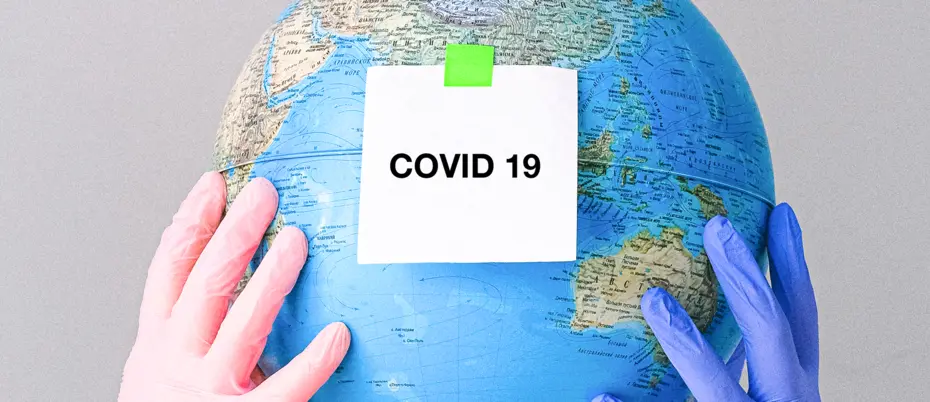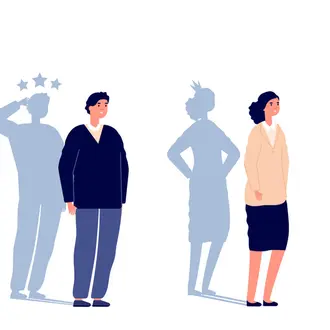MIT Sloan faculty and students develop data tools and programs to aid healthcare and state policy makers during the COVID-19 pandemic
CAMBRIDGE, Mass., Apr. 24, 2020––A group of faculty from the MIT Sloan School of Management, working with students in various graduate programs at MIT, has undertaken a wide range of projects to respond to COVID -- developing data analytics to guide policymakers, creating a network to help nursing homes in New Hampshire, helping nursing homes in Massachusetts hire critical frontline workers, and getting supplies of protective equipment, among other activities.The group, dubbed the COVID-19 Policy Alliance, is powered by Profs. Vivek Farias , Simon Johnson , Kate Kellogg , Valerie Karplus , Retsef Levi and a team of MIT Executive MBA students, and Ph.D. students across the MIT campus. They have been working seven days a week since early March to keep COVID-19 from overwhelming the U.S. healthcare system and to help guide policies for targeted social distancing practices. From the outset, the focus has been to co. In other nations such clusters have led to hospital “crashes,” leaving care inadequate for everyone. Here in the US nursing home deaths make up a disproportionate amount of deaths.
“The Covid-19 Policy Alliance set out to help thwart healthcare collapse and economic devastation. Our team is making a real impact in states like Massachusetts, Georgia, and New Hampshire,” said Professor Simon Johnson.
”Our playbook provides the intelligence and execution strategy to augment what state and local governments are currently doing,” said Andrew Surwilo, MIT Executive MBA 2020.
Among the Alliance’s successful efforts thus far have been:
Developing and Deploying Data Analytics
Profs. Vivek Farias and Retsef Levi have developed data analytics and modeling that enable policymakers and responders to clearly see where outbreaks are occurring, and where they might occur next. The National Guard is now using their tools in Georgia to allocate resources.
Prof. Farias said, “We have been very fortunate that -- through various data sharing partnerships with health companies Claritas and Buoy Health, and a partnership with the data visualization company Tableau -- our team has been able to build predictive models that operate at a detailed level. Support from Amazon has further allowed us to develop software to guide decisions based on these predictive models.”
“The Alliance’s demand forecasting and load balancing tools take real-time data to forecast the need for hospitals, ICU beds, and ventilators, down to the US county level. These models help decision-makers allocate medical and other resources. Our data makes it more likely that COVID and other patients will have the care available that they need.” said Prof. Levi.
Mobilizing, Recruiting, and Protecting Frontline Workers
Shortages of staff and volunteers have been hindering the ability of facilities like nursing homes and food distribution centers to keep up with the challenges created due to the pandemic. Profs. Kate Kellogg, Tom Kochan, Paul Osterman, and Mike Piore have been leading a team of students and colleagues that are helping the Massachusetts Senior Care Association (MSCA), the organization that represents 400+ of the state’s nursing homes. Almost half of the COVID-19 deaths in Massachusetts have occurred in long-term care facilities.
This effort has led to a partnership with Monster.com in Massachusetts to urgently match essential workers to open roles. Monster.com has created a special portal to
help Massachusetts nursing homes sign up potential employees and is utilizing its own resources to help mobilize new workers.
In partnership with the Broad Institute, the Alliance and MSCA created a program to increase COVID-19 testing of nursing home residents. The Alliance was able to secure initial funding for the effort from Schmidt Futures The Alliance sees this type of surveillance as mission critical for moving from broad social distancing to targeted social distancing.
The Alliance has also been instrumental in getting personal protective equipment (PPE) to nursing homes, by building on connections in China. Profs. Valerie Karplus and Yasheng Huang have led this effort. “Our incredible team has worked hard to connect the dots and get nursing homes the equipment they desperately need,” Karplus said.
In one instance, Kellogg’s team turned around an order within 36 hours, resulting in 75 facilities ordering desperately-needed PPE. Professor Kate Kellogg said, “I’ve always believed that MIT’s true uniqueness comes from the fact that collaboration is imprinted in its DNA. This vital effort between MIT professors and students, MSCA, and MA nursing facilities is just another testament to that.”
The Alliance is continuing to work on all these efforts while working on additional ways to ensure that nursing homes and other facilities have the information, trained staff, equipment and money they need to protect their residents and the general public.
Find out more https://www.covidalliance.com/
For more: media@covidalliance.com
The MIT Sloan School of Management
The MIT Sloan School of Management is where smart, independent leaders come together to solve problems, create new organizations, and improve the world. Learn more at mitsloan.mit.edu.




